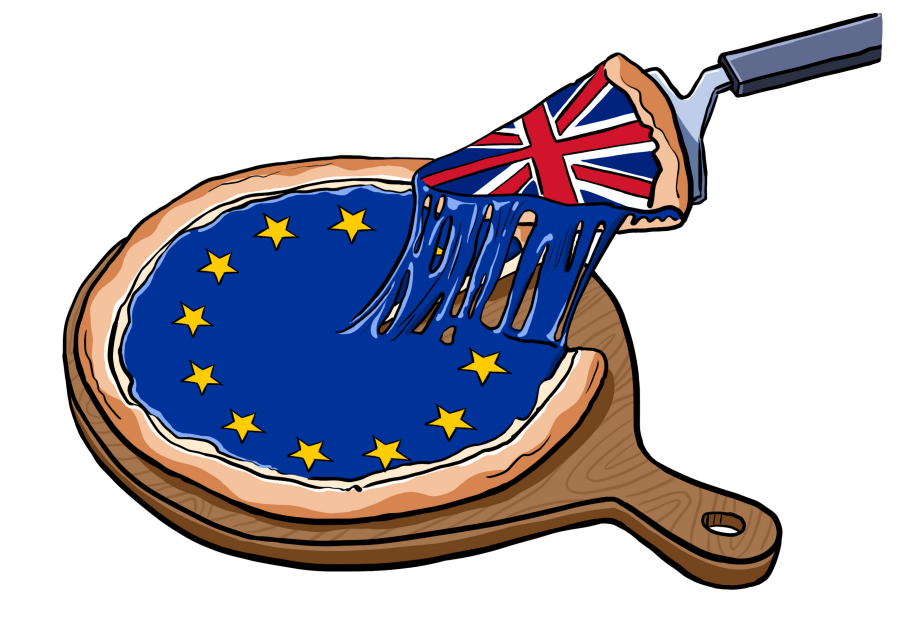Uncertainties created by Brexit have increased
By Li Jingkun | China Daily | Updated: 2019-08-29 08:11

Theresa May resigned as British prime minister in June after failing to complete the Brexit process, paving the way for Boris Johnson to be chosen as her successor by the Conservative Party. However, the uncertainties brought about by Brexit have increased since Johnson took office.
Johnson is a hard-line Brexiteer, as even after becoming prime minister, he has emphasized the United Kingdom will leave the European Union on or before Oct 31. He is also prepared to settle for a "no-deal" Brexit unless the EU agrees to renegotiate the Irish "backstop" issue (that the border between the Republic of Ireland and Northern Ireland remains open-as it is today-whatever the outcome of the UK-EU negotiations about their post-Brexit relationship).
But Brussels has rejected the idea of renegotiating the "backstop" issue, asserting that the deal is non-negotiable. Which means Britain is staring at a no-deal Brexit, which could be disastrous for the UK economy.
Also, a no-deal Brexit would further divide the Conservative Party, even threaten Johnson's prime ministership, because he does not enjoy the support of all Tory members of Parliament. For example, several important Tory MPs including former chancellor of exchequer Phillip Hammond resigned from their post shortly after Johnson became prime minister, and Labor Party leader Jeremy Corbyn plans to move a no-confidence motion against Johnson in Parliament.
Also, judging by the opinion polls, the Conservative Party doesn't appear to be in a position to win a snap election, if one were to take place. In fact, the Conservatives could lose in the election.
Besides, a no-deal Brexit could prompt the Scottish National Party to demand a second referendum on independence from the UK before 2021, especially because SNP leader Nicola Sturgeon has said that even if the UK remains in the EU, the possibility of a referendum cannot be ruled out.
Based on relevant laws, the British government should agree to the demand of a referendum on Scottish independence before one could be held. But Johnson has dismissed such an idea, intensifying the contradictions between the British central government and Scotland.
The Brexit dilemma has deepened the differences among political parties, and social groups, prompting some to say Britain is experiencing the most serious political challenge in peace time.
Economically, the Brexit process has had a negative impact on several fields. First, the pound sterling has depreciated by about 20 percent since the 2016 referendum, declining by 7 percent in the three months since May this year alone. While a devalued pound may be good for UK exporters, it would lead to inflation and an increase in commodity prices. Which could undermine the international status of the pound as a major international reserve currency.
Second, commercial investment in the UK has shown a declining trend since 2018. Although investments increased in the first quarter of this year, they dropped again in the second quarter because enterprises are worried about the uncertainties created by Brexit.
Third, the British economy's growth rate has lagged behind that of the eurozone and the United States. Actually, in the second quarter, Britain's GDP contracted by 0.2 percent compared with the first quarter, registering the first negative growth in the past seven years.
Moreover, the Bank of England believes that in case of a no-deal Brexit, the UK would slip into recession which might be more severe than the 2008 global financial crisis-and GDP could decline by as much as 8 percent.
As for the EU, Brexit could deal a blow to the European integration process, which would weaken the EU's influence in the international community.
But Brexit would teach other European countries a lesson, prompting them to consider all the possible consequences of a political or economic move before actually making such a decision. And there is still enough reason to believe that after Brexit, the EU and the UK will not become antagonistic toward each other and, instead, will continue to cooperate in the economic and other fields for mutual benefits.
The author is a researcher of the Institute of European Studies, Chinese Academy of Social Sciences. The views don't necessarily represent those of China Daily.
























